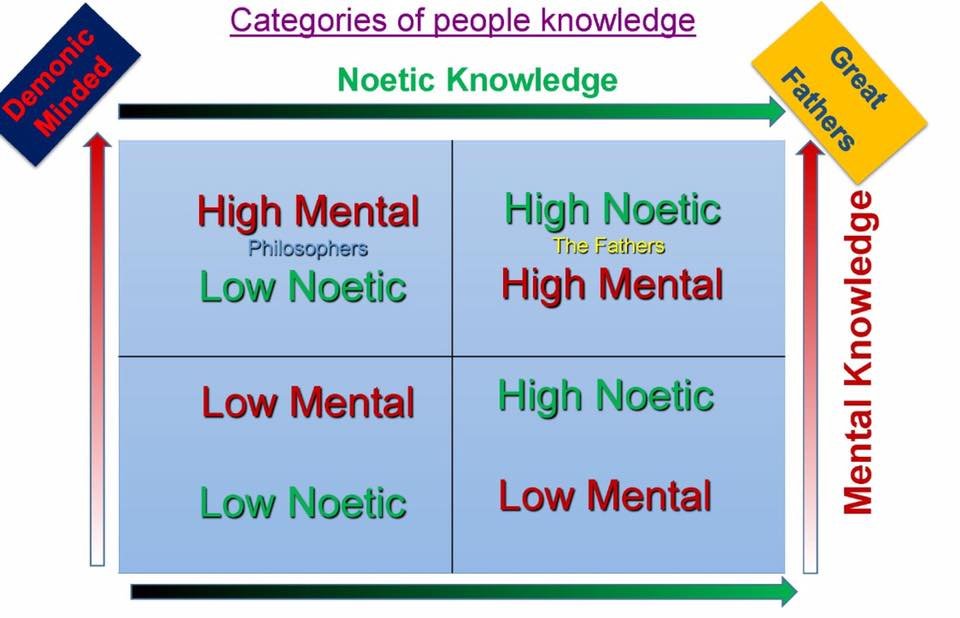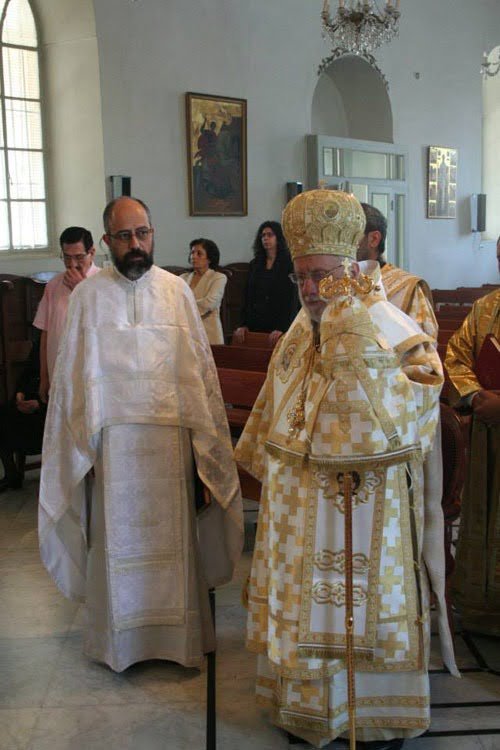One of the keys to the understanding of the patristic wisdom and of the worldly wisdom is in this very clever grouping of knowledge under these four categories as figured out by Fr. John Romanides:
There are two centers of knowledge in man: One is the nous, which is activated in the heart, and the other is that of the mind and reasoning which is connected with the brain. Orthodox spirituality is supported by the noetic power of the heart, while the thinking power is supported by the brain.
“Thus we have the following four categories of people:
1. Those with low mental achievement, who rise to the level of noetic perfection.
2. Those with the highest mental achievements, who fall into a low, or even the lowest, level of noetic imperfection.
3. Those who reach both perfect mental achievements and noetic perfection.
4. Those who have poor mental qualities and achievements, and hardness of heart as well.”
Does the above shed light on the below?
Mt 11: 25
At that time Jesus answered and said, I thank thee, O Father, Lord of heaven and earth, because thou hast hid these things from the wise and prudent, and hast revealed them unto babes.
1 Cor 2: 4-16
And my speech and my preaching was not with enticing words of man’s wisdom, but in demonstration of the Spirit and of power:
That your faith should not stand in the wisdom of men, but in the power of God.
Howbeit we speak wisdom among them that are perfect: yet not the wisdom of this world, nor of the princes of this world, that come to nought:
But we speak the wisdom of God in a mystery, even the hidden wisdom, which God ordained before the world unto our glory:
Which none of the princes of this world knew: for had they known it, they would not have crucified the Lord of glory.
But as it is written, Eye hath not seen, nor ear heard, neither have entered into the heart of man, the things which God hath prepared for them that love him.
But God hath revealed them unto us by his Spirit: for the Spirit searcheth all things, yea, the deep things of God.
For what man knoweth the things of a man, save the spirit of man which is in him? even so the things of God knoweth no man, but the Spirit of God.
Now we have received, not the spirit of the world, but the spirit which is of God; that we might know the things that are freely given to us of God.
Which things also we speak, not in the words which man’s wisdom teacheth, but which the Holy Ghost teacheth; comparing spiritual things with spiritual.
But the natural man receiveth not the things of the Spirit of God: for they are foolishness unto him: neither can he know them, because they are spiritually discerned.
But he that is spiritual judgeth all things, yet he himself is judged of no man.
For who hath known the mind of the Lord, that he may instruct him? But we have the mind of Christ.
James 3:15
This wisdom descendeth not from above, but is earthly, sensual, devilish.
*** Worldly human wisdom can even end in demonic wisdom.
***The wisdom that comes from above is always sanctifying.
The graph below describes the place of the philosophers, the wise and the most brilliant of this world vice the wisdom of the spiritual men, and of the great fathers.
+Fr. Mansour Azar







